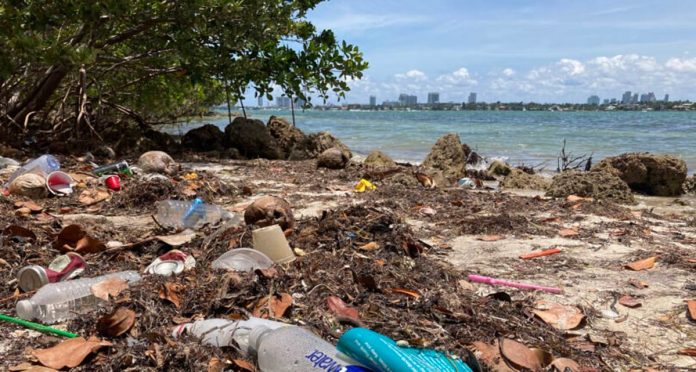University of Georgia researchers are trying hard to help in Miami to help leaders to deal with a problem that affects nearly every city in the world- Plastic pollution.
An environmental engineering professor in UGA’s College of Engineering, Jenna Jambeck and her students have partnered with Ocean Conservancy. Ocean Conservancy is a non-profit environmental advocacy group. The City of Miami needs to understand the life cycle of plastic pollution and what steps needs to be taken to keep the Magic City and its famous waterways pristine.
Jambeck and her students have partnered with Florida International University students. They together have conducted a community-level analysis of the origins and fate of plastic waste, specifically single-use plastics such as bottles or food packaging. Using this is known as the Circularity Assessment Protocol or CAP.
The director of Florida Conservation at Ocean Conservancy, Jon Paul said, “The Miami CAP can give us the knowledge we need to help preserve and protect the economic and cultural powerhouse that is our ocean. With it, we can work with champions on the City Commission to develop landmark regulations that will keep that debris out of the Magic City’s water. Florida’s marine environment is at a crossroads and we need all hands-on deck to save the iconic waters that we as Floridian’s love.”
This project is builds upon Ocean Conservancy’s Shores Forward initiative. The project will be culminated in a comprehensive report which will be released in January.
Jambeck has laid a landmark study published in the journal Science in 2015 and the study has estimated 8 million metric tons of plastic enters the ocean every year. Jambeck said that it is important to accurately record plastic and other litter that we see on the ground or in the water. The CAP also involves several other key components.
Jambeck said, “For example, we go to local stores to see what kinds of products are most frequently sold and how they are packaged, we examine waste management practices, and we work closely with members of the community to better understand local attitudes about conservation and pollution. The entire process is in collaboration with local partners and the city or community to highlight strengths and recommend actions to increase circularity and keep plastics out of the environment.”
Since 2019, Jambeck and his team has used the CAP in 10 countries and 27 cities around the world. This includes India, Bangladesh, Vietnam, the Philippines, Panama and Mexico. But for the first time the protocol has been fully deployed in a major U.S. city.
This project has been designed to increase circularity in the way products are manufactured and used. This is not like a linear model where products are created and used for a very short time and discarded. Circular model emphasizes in reuse, remanufactured and recycled materials.
The scientists have used a free app called Debris Tracker to analyse. This app has been created by Jambeck and a fellow UGA engineering professor Kyle Johnsen. Both the professionals and citizen scientists have used the open-data app that has allowed users to track plastic and other pollution through their smartphones. Till now, Debris Tracker users from all around the world have logged more than 5 million items.
Thousands of community members have used the app to log more than 75,000 pieces of trash throughout the Mississippi River Basin. This was the part of a project to reduce waste along America’s most essential inland waterway. a doctoral student in UGA’s College of Engineering and the CAP director, Taylor Maddalene has said that the data they have gathered using the Debris Tracker app have helped them to understand what type of litter ends up in the environment and how it got there.
Maddalene added, “When we analyze litter alongside other elements of the CAP, we’re able to provide science-backed data that can ultimately inform decision making at the city level to improve water quality and reduce pollution.”

